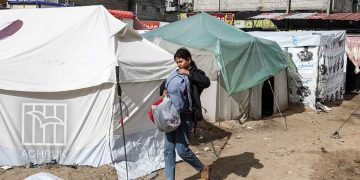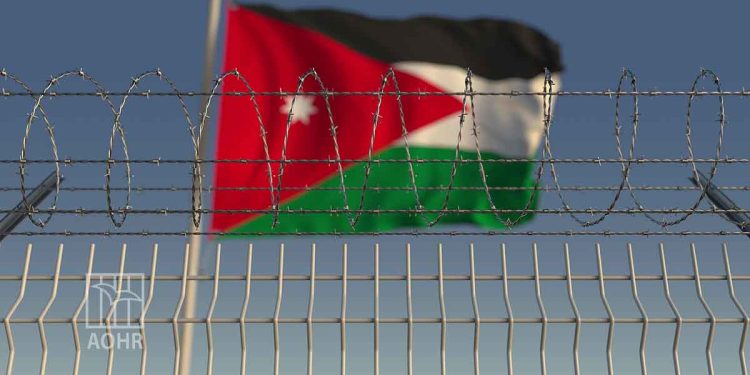The Jordanian security services continue to arbitrarily detain the activist Somaya Abu Nabaa, who was arrested during her visits to political detainees in the Marka prison in Amman.
On Sunday, the North Amman Court decided to extend the arrest of the detainee on hunger strike, Somaya Abu Nabaa, for one week in Al -Juwaida prison. The judge rejected a request to release her on bail, requesting her to resubmit it next week.
Last Sunday, July 24, 2022, Somaya was visiting political detainees in Marka Prison, when the Jordanian security arrested and transferred her to a security centre, and released her on bail later on the day, provided that she goes to North Amman Court in the morning.
Abu Nabaa went to court, where a public prosecutor in northern Amma decided to arrest her for sharing “illegal” posts on Twitter.
According to her lawyer, Malik Abu Orabi, the court charged her with sharing false news that would undermine the state, defamation of an official institution, inciting sectarian and racist strife, and publishing prohibited documents.
Abu Nabaa is being tried for criticising the Jordanian regime, Egyptian President Abdel Fattah Al -Sisi, and Saudi Crown Prince Mohammed bin Salman.
Abu Orabi said that Abu Nabaa has been on a food strike since last Sunday, in protest against her I’ll-treatment. She told the court, “I refuse to talk. I can only be brought to trial after you hold accountable the policewoman who offended me yesterday.”
He pointed out that Juwaida prison administration has changed its treatment of her following the visit of a delegation from the National Center for Human Rights to Abu Nabaa.
Abu Urabi indicated that the charges against Abu Nabaa are the same charges used against political activists in Jordan since the Arab spring revolutions.
He stressed that the political arrests in Jordan have increased despite official talk about the improvement of political participation and openness to civil society.
He added, “the judge has the right to arrest the defendant for a month, after which the administrative can arrest him for another period, with a fine of 100 thousand Jordanian dinars. “If the defendant bails his house or a land he owns, the court usually rejects it, as the aim is the arrest, not bail”, he added.
Abu Urabi continued: “Many of the recent arrests were judicial and administrative arrest, which is longer than the period of the actual sentence in the original case.”
The Civicus Monitor, a global research indicator that classifies and tracked basic freedoms in 197 countries and regions, reduced Jordan’s classification in 2021 from “obstructive” to “suppressive”, indicating that the closure of the Jordanian authorities of the Teacher’s Syndicate, cutting the Internet, and restricting journalists, civil society and activists resulted in the reduction of the classification.
In its annual report for 2020, the Freedom House Index showed Jordan’s decline in civil freedoms and political rights by ranking 34th globally and becoming a “non-free” country, after it was partially classified among the free countries.



























